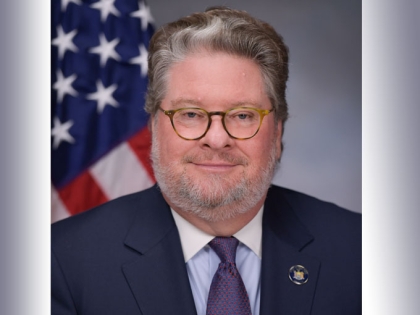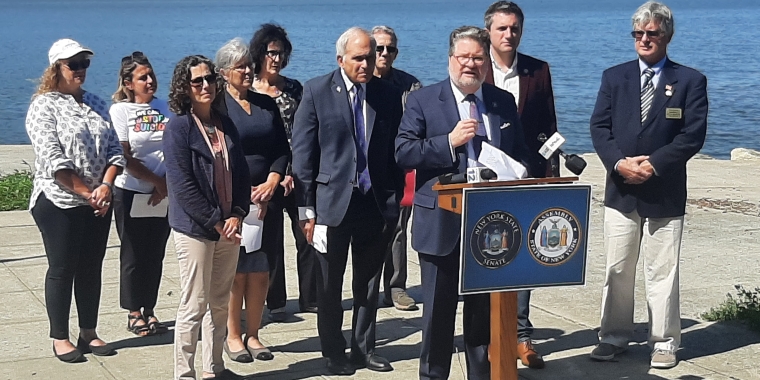
Harckham Introduces Bill to Require Insurance Info on Pipeline Applications
October 14, 2021

Peekskill, NY – New York State Senator Pete Harckham has introduced new legislation that requires the disclosure of insurance information on permit applications for the construction of pipelines traversing any freshwater wetlands in the state. The necessary information, which the bill states will be shared with relevant municipalities, includes the name of the insurance company covering the construction project, the amount of coverage and what is covered under the plan.
“The construction and placement of pipelines across the state’s freshwater wetlands are not without potential risks, and this new legislation simply offers transparency in regard to liability,” said Harckham. “Having insurance information readily available, in case of an accident or an emergency, will give community members who are worried about the environment and public safety some deserved peace of mind.”
Municipalities across New York that are considering potential installation of pipelines have, at a minimum, a right to know what insurance is in place to protect them from any harm that may arise as a result of a pipeline’s construction or presence, Harckham added.
Harckham’s new bill (S.7419) seeks to protect local communities by requiring that applicants seeking to conduct regulated activity involving the use of a pipeline on wetlands provide a full range of information from the pipeline’s insurance company to make sure accidents and contamination are covered for liability.
Additionally, this requirement would ensure that all pipeline activities being conducted on wetlands are properly insured while helping to safeguard the integrity of the state’s wetlands.
“New York has an unfortunate history with pipeline construction and catastrophic violations of the Clean Water Act, and more often than not, it is our communities that bear the costs of contaminated water, disaster response and cleanup,” said Roger Downs, conservation director of the Sierra Club Atlantic Chapter. “In some cases pipeline corporations are underinsured, and most liability information is shielded from public knowledge, which in turn perpetuates unsafe practices that put water resources and community safety at risk. The Sierra Club applauds Senator Harckham for shining a spotlight on this problem and advancing legislation that requires pipeline developers to disclose insurance information when a project proposes to disturb wetlands or other water resources.”
The bill also calls for a clerk or commissioner receiving a pipeline permit application with the insurance information to share it with all local governments where the proposed pipeline construction or placement is located. When enacted, the bill’s action will take effect immediately.
“Wetlands are fragile ecosystems and any disturbance may degrade their ability to purify drinking water or store flood waters,” said Jeremy Cherson, senior manager of government affairs at Riverkeeper. “It is critical that local governments, as well as the public, have transparency into insurance underwriting for pipelines. There must be assurances that the policy can cover the cost of an incident that could cause harm to these valuable and fragile ecosystems.”
“If corporations are going to run pipelines carrying toxic chemicals over waterways, local people must have the right to know, in the event of a rupture, that the insurance company responsible for the clean-up has the financial wherewithal to pay for the clean-up,” said Tim Guinee of the Climate Reality Project and a founder of the Climate Actors. “I applaud Senator Harckham’s timely legislation.”
Nancy Vann, co-chair of Safe Energy Rights Group, said, “This will be a great step forward as we try to make sure any pipeline problems that impact our communities’ wetlands can be addressed quickly—and not at the taxpayers’ expense. The recent oil spill in California highlights how sensitive our water systems are, but we can’t tackle potential accidents if we don’t have the necessary information.”



